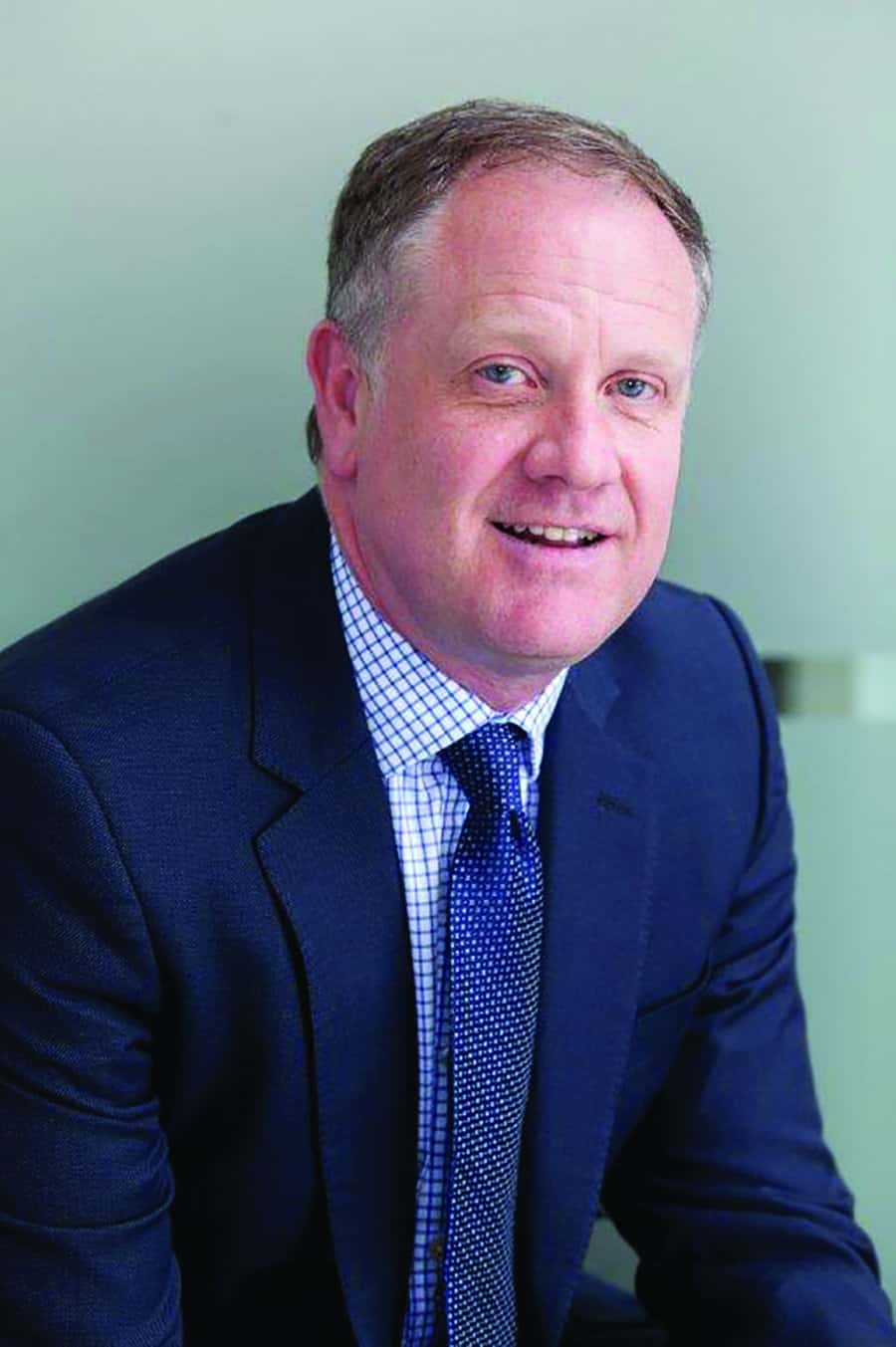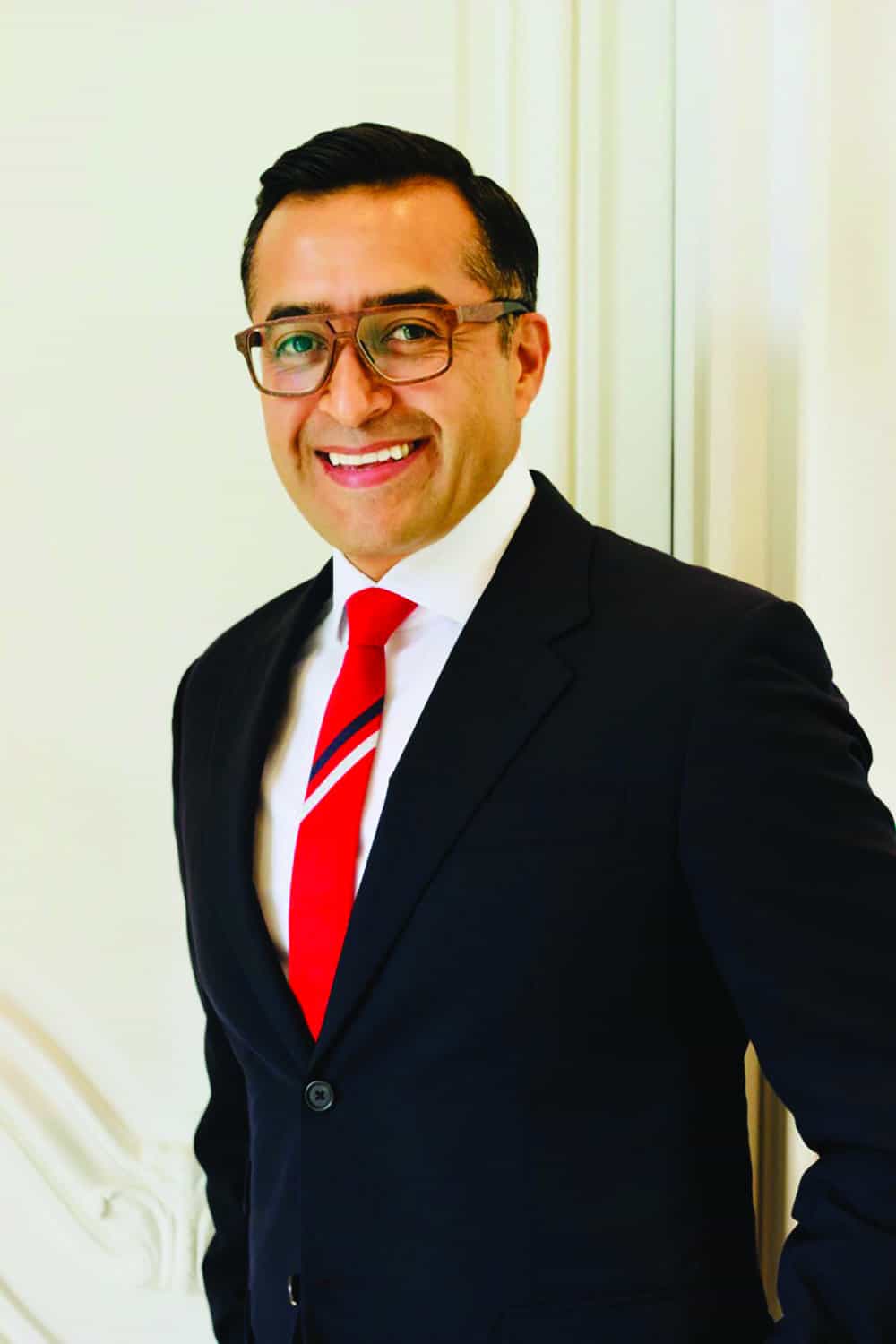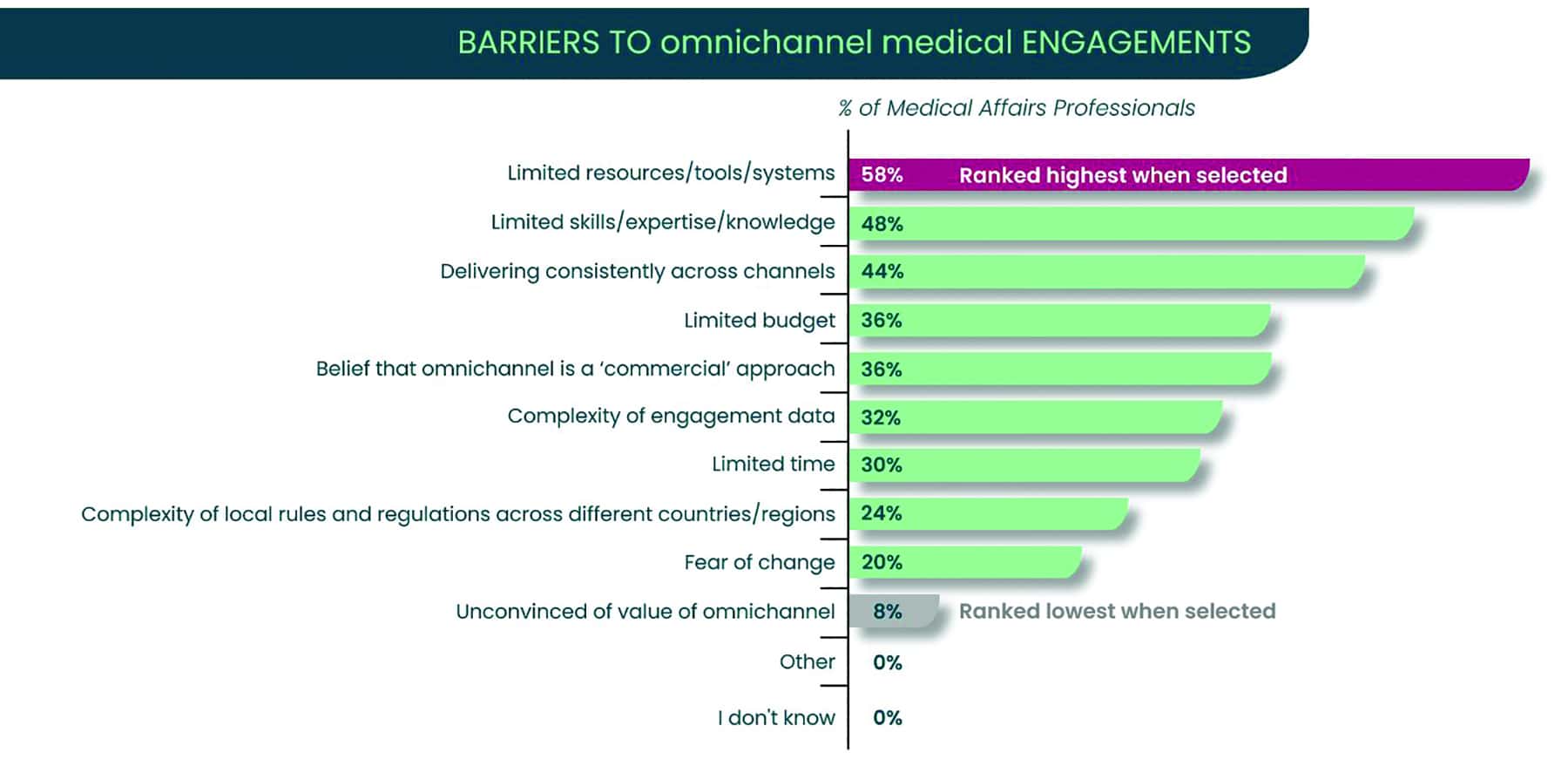


Omnichannel remains a strategic priority within Medical Affairs organisations, with the speed of adoption to this model varying from company to company. While this approach promises new avenues for stakeholder engagement, with a blend of digital and personal interactions, it also presents organisations with several common challenges.
This was highlighted in a recent survey of Medical Affairs professionals, commissioned by Ashfield MedComms (AMC) to explore the status of omnichannel capabilities across Medical Affairs organisations. The survey showed that while Medical Affairs has been implementing omnichannel at different scales, there is a need to close the gap between aspiration and reality. Although organisations are starting to build in-house digital and analytic capabilities, the skill and experience required to implement such programmes is still a work in progress (Graph 1).
Clearly, there remain barriers to overcome if Medical Affairs wants to truly leverage data, content and technology to deliver personalised communications. However, an effective strategy offers the reward of more meaningful, quality interaction with stakeholders that, in turn, leads to the appropriate treatment for the right patients. With this goal in mind, how can medical communication agencies support the needs of Medical Affairs teams to make omnichannel aspirations a reality? Here are some learnings that we have gathered over the last 18 months.
You don’t need to do it all to develop data and analytics expertise
With Medical Affairs organisations at different points along their omnichannel journey, medical communications agencies that have in-house advanced analytics and data modelling systems can greatly support by supplementing and interrogating structured and unstructured data collected. This can help Medical Affairs organisations – from the naïve to experienced – generate insights and develop strategies to maximise the success of a programme and channel effectiveness. According to Matt Lewis, Global Chief Medical Analytics and Innovation Officer, Inizio Medical: “Recent events have both catalysed and transformed the adoption of data and digital in medical affairs. Pre-COVID-19, much of this was optional, a nice-to-have; now, it’s critical. Leveraging insights that inform actions at the level of the practising clinician enables teams to speed up time to decision and improve outcomes. In a world overwhelmed by a surplus of information, architecting and orchestrating a navigable journey for the healthcare professional to satisfy existing needs and solve patient problems is the holy grail.”

Graph 1: What are the biggest challenges preventing* Medical Affairs from delivering personalised, impactful omnichannel engagement? (*or slowing) Base: N=50
We need to change behaviours to enable adoption of new capabilities
While many Medical Affairs organisations claim that they have or are shifting to omnichannel, they have come to realise that it isn’t as simple as it seems. Not only do they need to update systems, capabilities and processes, they also need to change people’s behaviours. As we seek to evolve our customer engagement model, it is vital that we empower the field teams to adopt the capabilities needed to operationalise omnichannel.
“Often, during pilots or full implementation of omnichannel projects, the leadership team discovers that the medical field force is not using the system’s functionality to its full potential. When we analyse the barriers behind this, it’s apparent that the measures of performance haven’t changed, so the incentives need to be redesigned to motivate new behaviours,” explained Agustin Ramirez, Global Strategy Director, AMC.
We need speed and automation to respond with agility to HCPs’ evolving needs
One of the benefits of omnichannel, according to the AMC survey, is the ability to create personalised audience experiences. With rich data sets now available, in-depth persona level insights can be leveraged by medical communication agencies to develop true personalised educational engagement.
Such insights allow us to go further than simple audience segmentation. For each persona we can now micro-segment and start to build a better picture of attitudes and behaviours, preferences (eg, channels, topics of interest, content format) and behavioural barriers we need to address.
Our survey also highlighted that Medical Affairs organisations valued the ability of omnichannel to adapt rapidly to the communication needs of audiences. However, to ensure content can be personalised and deployed in ‘real-time’ new processes that allow rapid medical approval of modular content and automation of engagement still need to be embraced. “Omnichannel’s impact is directly related to our ability to deliver relevant information to each HCP when and how they need it. Both interactions in real time and AI-driven, and speed in how we develop, approve and activate content, can be achieved in an ethical and compliant way,” said Agustin Ramirez.
Digital and creative content must work harder in the hybrid engagement model
With HCPs’ engagement preferences shifting to digital, the pressure is on to deliver more and better remote interactions. Developing content that is not just relevant, but motivating and engaging in different channels can make our communications more effective – and digital allows us to test, learn and optimise to ensure it resonates.
Content should not be developed for a specific channel, but designed to fulfil our audiences’ needs at a time and place that suits them. Delivering on their preferences will build trust and deepen their relationship with the organisation.
Medical communication agencies can also help curate content that fits both the channel and the audience requirements, and fills the educational and scientific gap. According to Maxine Dunham, Head of Creative Projects, AMC: “We should now be building modular, channel-agnostic content that can be assembled into personalised communications for stakeholders’ preferred format and channels. This approach can reduce duplication of effort and streamline internal approval processes, allowing us to respond faster to audience needs.”
While there is a need to close global-to-local gaps, there is also a need for flexibility
Once we have developed a global omnichannel road map or programme, how do we support local/regional affiliates along this journey? In many companies, the technology platforms that enable omnichannel communications are not yet available or adopted at a local level. This impacts on the seamless implementation of new engagement models and may also require alignment with local rules and regulations. In some cases, market specific customer engagement preferences may need different performance metrics. We need to acknowledge these gaps and build them into our planning, until the organisation gets up to speed.
As ever, partnerships and training are key in helping to bridge this gap. Building up affiliate knowledge on omnichannel processes and country-specific regulatory requirements can be achieved through workshops and best practice sharing, together with provision of playbooks. “Getting everyone on board across markets takes time. Ensuring alignment on the basics (eg, a unified approach to HCP prioritisation, how to develop and reuse content, how to measure engagement with each piece of content, which KPIs to use to measure success) is a must, while allowing for flexibility on how to engage through channels and content,” stated Stephen Jones, Director of Client Engagement, AMC.
In summary, this research provides insights to the reasons why progress is slower than desired in the journey to omnichannel for Medical Affairs. Both the promise of improved customer engagement and the pressure to provide a hybrid model during the pandemic have accelerated the integration of new technologies and ways of working. In the coming years, Medical Affairs will build the capability and scale needed to establish a consistent approach to enable personalised customer engagement. To achieve that aspiration faster, we need to recalibrate our approach, build on some of the learnings thus far and continue to motivate our internal stakeholders to sustain momentum.
You can request a copy of the full research at ashfieldmedcomms.com/contact
*Survey conducted by AMC of 50 Medical Affairs professionals (US and Europe)





